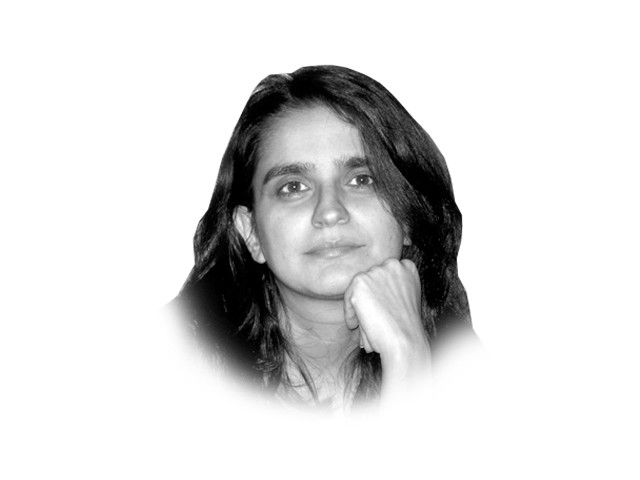A legitimate fight by KGS parents
Under the Environmental Protection Act, the city government is required to conduct an Environmental Impact Assessment.

This permission is suspect in that it quite likely violates the law, since no EIA was conducted before approval was granted. And it is in this context that on October 14 a public hearing on the project’s EIA was held by the Sindh Environmental Protection Agency in Karachi.
The builder then hired consultants to prepare an EIA for the planned structure. This 150-page document is misleading in many areas and dismisses most, if not all, environmental concerns and allows builders to treat EIA submission as a mere formality with no real substance.
Keeping aside the strong sentiments — some valid — against the school and the stand taken by its administration and parents of students, consider how this issue represents a larger threat to the city through unchecked construction without any consultation with local communities and schools.
Buildings and bridges in Karachi are routinely constructed without any EIA and concerned citizens are robbed of an opportunity to participate in a public hearing to air their concerns. The result is illegal commercialisation which results in the construction of structures that are hardly in line with the needs of the city’s population. Interestingly, contrary to the view held by many people about the school, the parent sample present at the hearing on October 14 was diverse, comprising doctors, lawyers, teachers, engineers, environmentalists and small business owners. Many of those present expressed solidarity with all schools in the city that suffer from irresponsible development. They were ably assisted by Shehri, a reputed NGO that has been in the forefront in fighting illegal development. One of the KGS parents I spoke with said that in future the school should send a committee of parents in solidarity when a school is threatened by commercialisation.
Some of the more obvious issues with the EIA for the 22-storey building are: 1) Lead poisoning which holds serious consequences for children as well as adults has not been mentioned at all. On questioning, the consultants claimed that unleaded petrol would be used as fuel for machinery and so on in the construction phase. However, unleaded petrol is not sold anywhere in Pakistan. Other adverse effects on children caused by elevated levels of dust and fumes in the air were not addressed either. 2) There was a summary dismissal in the EIA of concerns about increased burden on neighbourhood infrastructure — sewerage lines, water, electricity and solid waste. 3) One parent pointed out that there was no analysis of the potential impact of this structure on the foundations of nearby homes and schools. In response to this, the consultants said that were a wall to fall on a neighbour's property, compensation would be given to the owner. 4) Security concerns, inadequate provisions for increased traffic and parking were also dismissed in the EIA and at the hearing. When pressed, the consultants said they were analysing the situation.
At the end of the hearing the Sindh EPA chief announced that the commercialisation policy must be revisited — which may be a partial victory for KGS parents and local residents who do not want the project to go ahead. He also suggested that parents should consider sending their children to school in buses. Some parents dismissed this as a security risk, but it is worth exploring since it will make for a more civic-minded responsible student population.
It is time for parents who have children in the school to be more social-minded and reflective about the city as a whole. The truth is that we are all completely emasculated in front of builders who invest millions of dollars on property development and grease hundreds of palms.
Published in The Express Tribune, October 16th, 2010.














COMMENTS
Comments are moderated and generally will be posted if they are on-topic and not abusive.
For more information, please see our Comments FAQ